Google Home Speaker vs Amazon Echo Dot Max – here’s how the two big smart speaker rivals compare
Which one will you go for?
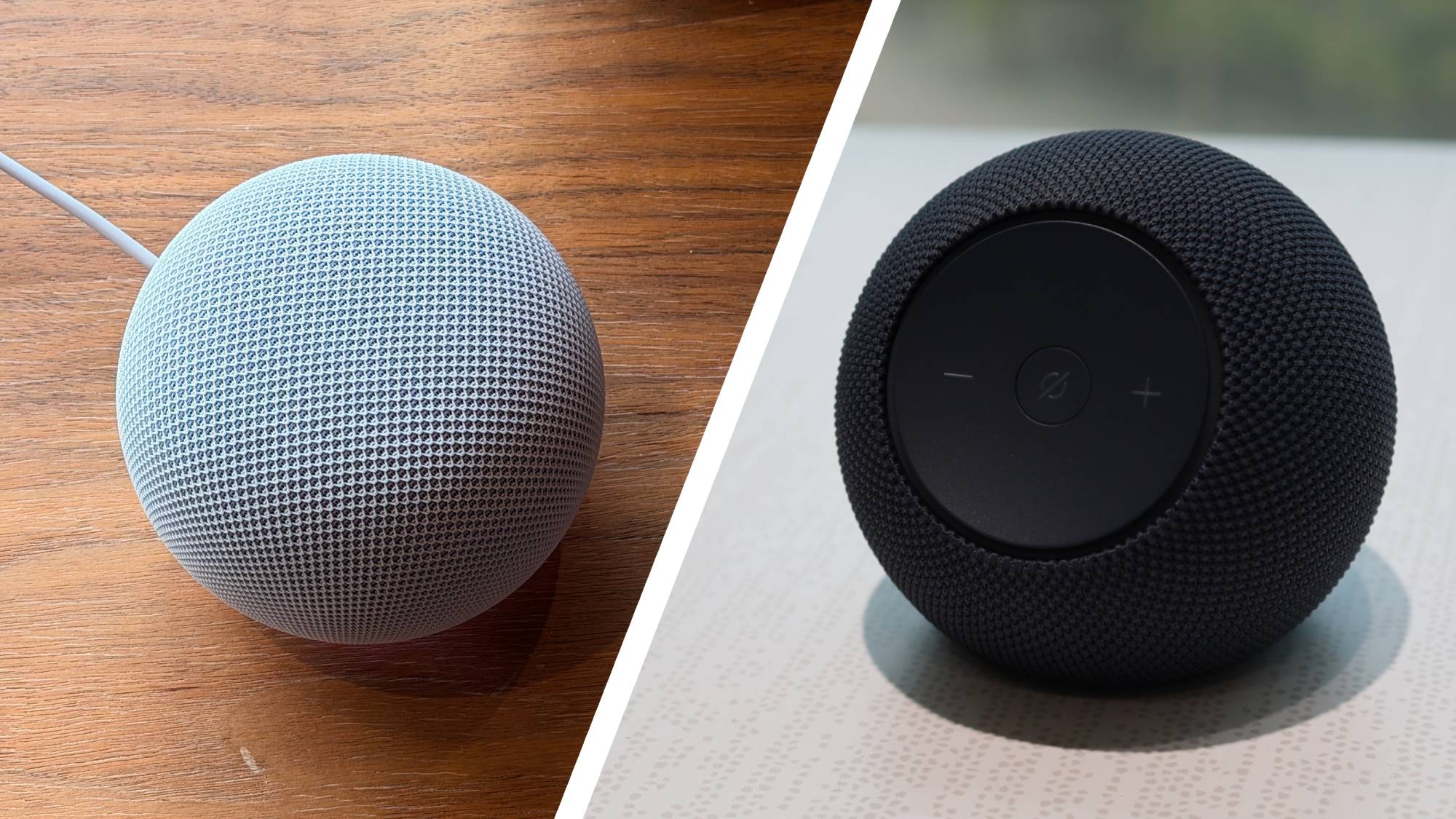
Sign up for breaking news, reviews, opinion, top tech deals, and more.
You are now subscribed
Your newsletter sign-up was successful
Hot on the heels of Amazon’s Echo Dot Max and Echo Studio announcement, Google has just unveiled its own new smart speaker revamp marking the first one since the Nest Audio in 2020. Say hello to the new Google Home Speaker.
Not only is the Google Home Speaker the company’s first audio device in half a decade, it’s the first one built to accommodate the AI capabilities of Google Gemini. Google has ‘designed [the speaker] from the ground up to be the ultimate audio experience for Gemini in the home’.
Similarly, Amazon’s new Echo Dot Max and Echo Studio speakers are built for the advanced Alexa+ voice assistant, which was announced earlier this year – but is currently US-only. As well as new AI smarts, both Amazon and Google devices pack other benefits, including a revised sound system – but how do they compare overall?
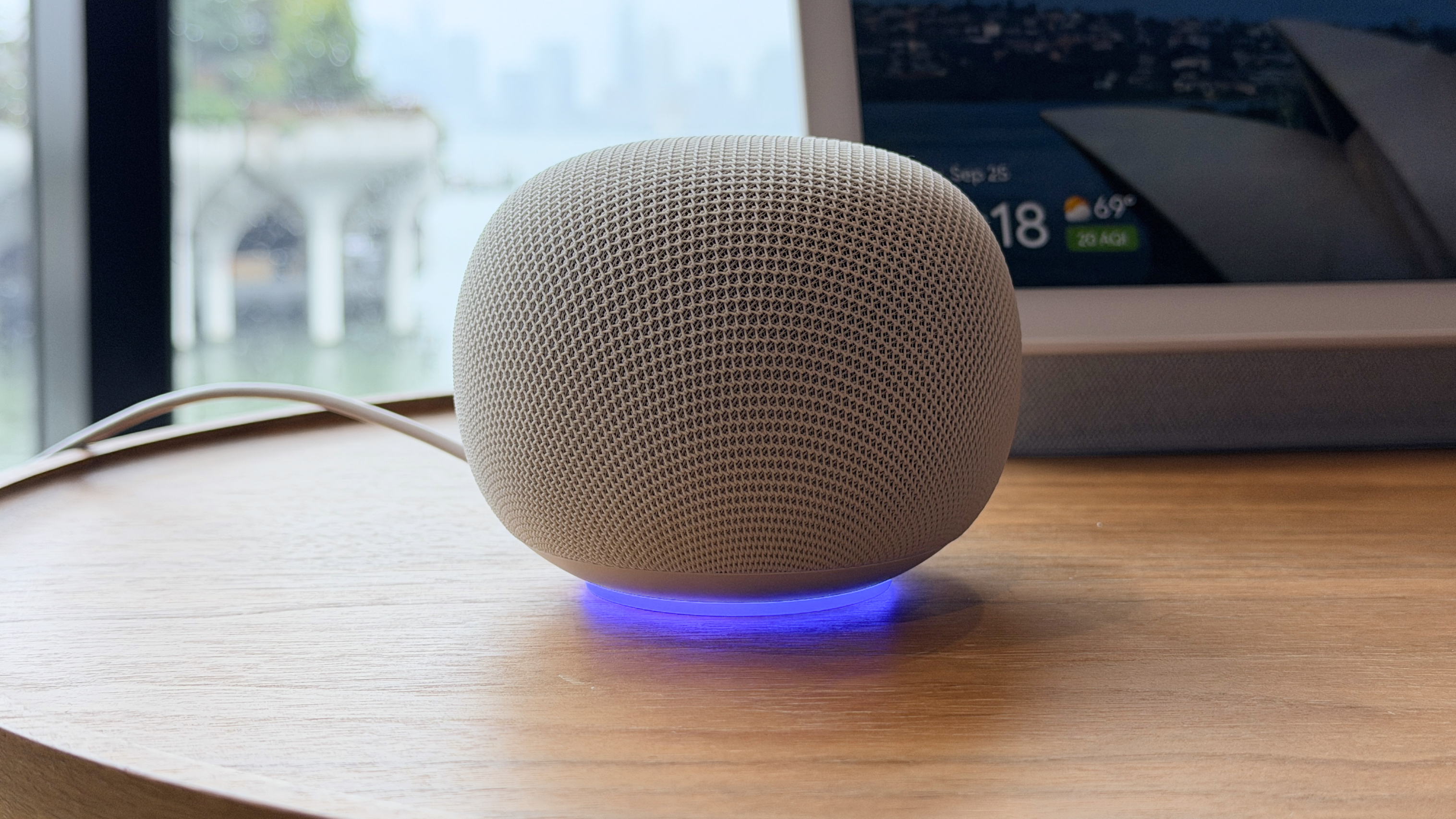
Google Home Speaker vs Echo Dot Max & Echo Studio
First, let’s talk price and availability. The Echo Dot Max ($99.99 / £99.99 / AU$199) and Echo Studio ($219.99 / £219.99 / AU$429) speakers are available to preorder now for an October 29 release. The Google Home Speaker matches the Echo Dot Max at $99/ £99.99 (AU prices pending), but won’t be available until spring 2026. However, Google has given a reason for the delay, stating 'the timeline for this new speaker is intentional.
'Our top priority is rolling out Gemini for Home in early access to the tens of millions of speakers and smart displays already in your homes’, Google shared in its announcement.
Then there’s the matter of AI smarts. In the case of the Echo Dot Max and Echo Studio, both will come equipped with Alexa+ while the Google Home Speaker will accommodate Gemini for Home, but a subscription is required for both.
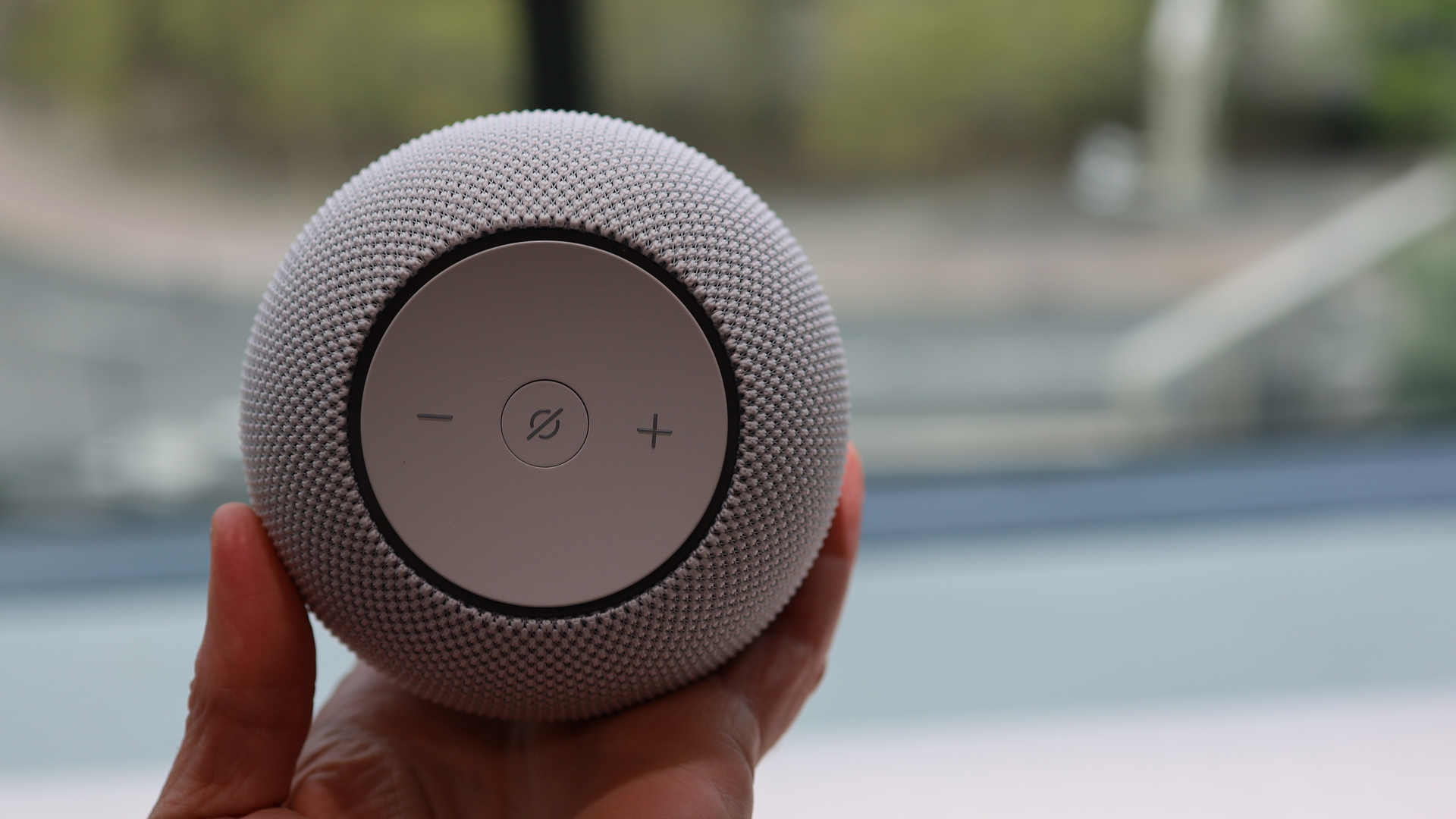
As mentioned, Alexa+ is US-only at the moment and will set you back $19.99 a month. It’s indeed pricey, unless you’re a Prime member in which case Alexa+ is included with your $14.99/ month subscription.
Sign up for breaking news, reviews, opinion, top tech deals, and more.
Though you can use Gemini for Home with the new Google Home Speaker to tackle every day tasks, you’ll need a Google Home Premium subscription to take advantage of advanced features such as Gemini Live. There are two different tiers; Standard ($10/ £8 a month or $100/ $80 a year) and Advanced ($20/ $16 a month or $200/ £160 a year).
The two new devices also draw comparisons with its 3D-knitted exterior and upgraded sound system, both adopting a 360 degree spatial audio approach. The new Echo speakers pack a 3x bass upgrade from the previous model and Dolby Atmos support – the latter which the Google Home Speaker doesn't have.
That aside, both Google and Amazon are doubling down on their home theater improvements. You can connect up to five Echo Max Dot or Echo Studio devices with compatible Fire TV sticks to create a complete surround sound system, and can hook the Google Home Speaker up to a Google TV Streamer, although you can only pair two.
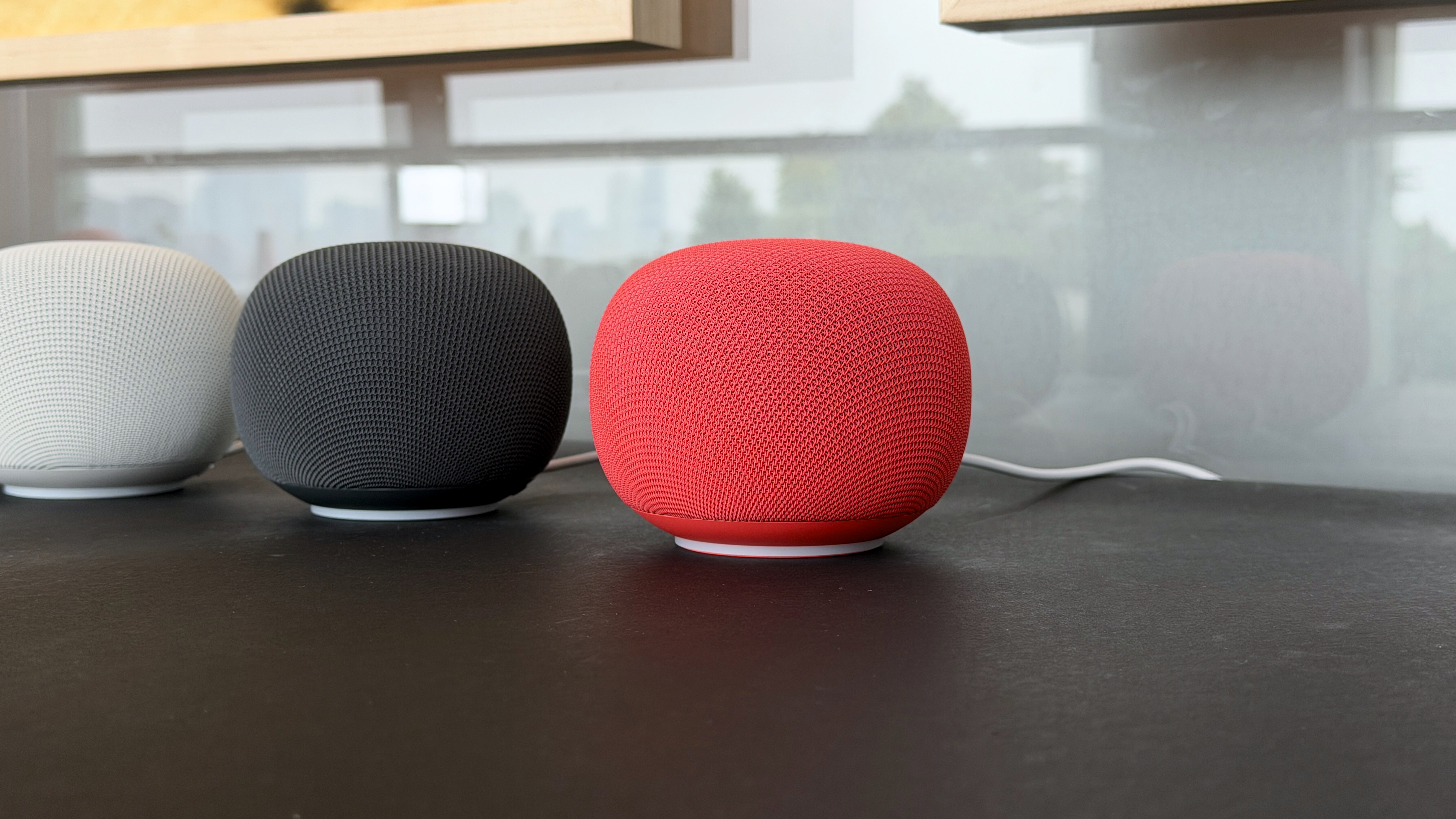
Early verdict
At the moment it’s difficult to come to a solid conclusion as to whether Amazon or Google will come out on top given the scarcity of the Google Home Speaker’s specs.
However, for me, the new Echo speakers have the upper hand. That’s not to say the Google Home Speaker won’t deliver, but we'll have to wait until it's in our homes to find out more.
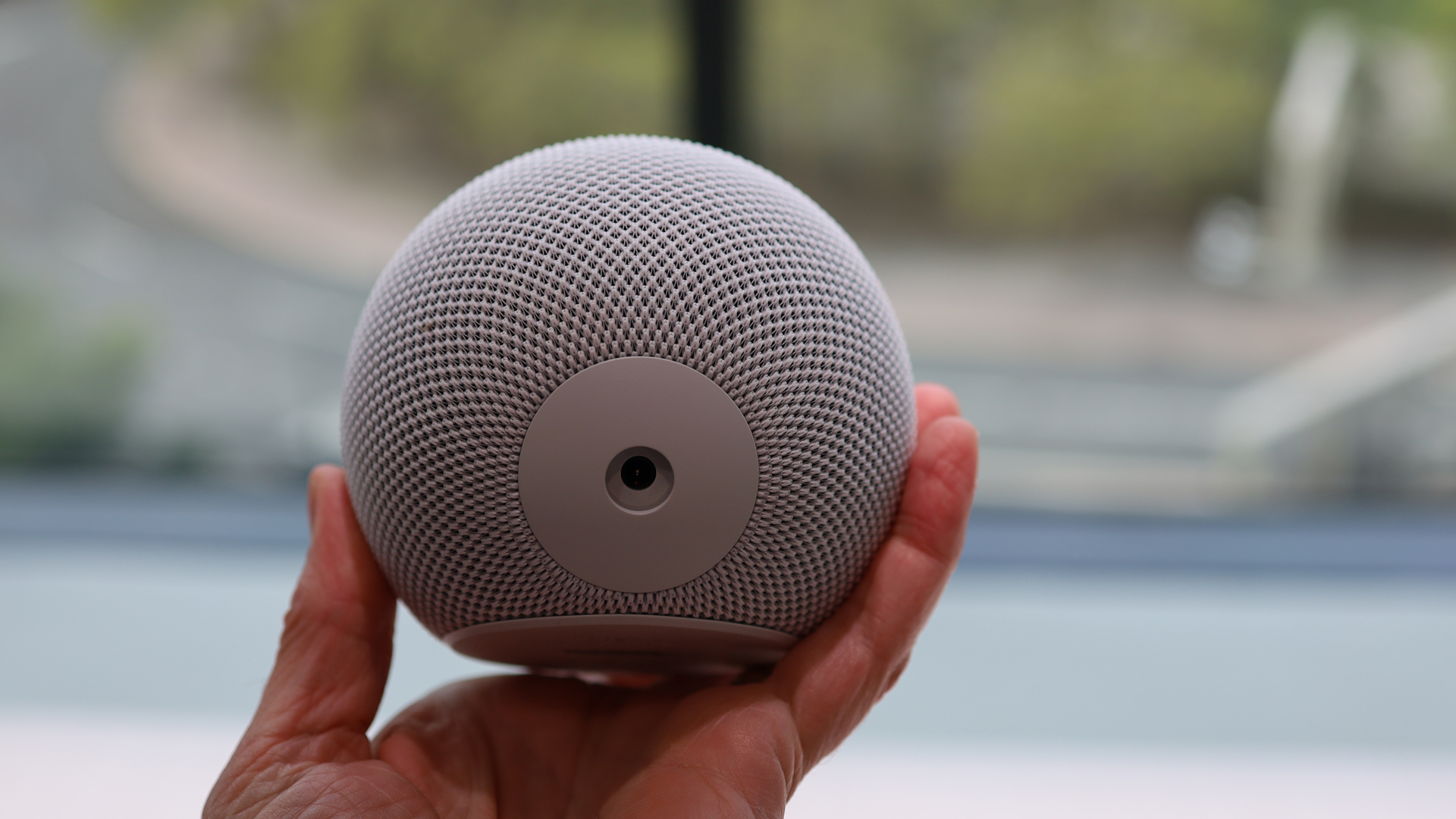
When it comes to AI smarts, the Echo Dot Max and Echo Studio are the better deal money-wise, as Alexa+ is included with a Prime membership – which a large majority of Amazon customers are already signed up to. Instead of paying just shy of $20 a month, Prime members will get access to Alexa+ features included in their $14.99 month subscription, saving you a bit of cash.
I imagine that this will be the main factor that customers will consider before purchasing, as both speakers are quite similar on the spatial audio front, but I’m not ruling either one out until I have the opportunity to explore them in depth.
Follow TechRadar on Google News and add us as a preferred source to get our expert news, reviews, and opinion in your feeds. Make sure to click the Follow button!
And of course you can also follow TechRadar on TikTok for news, reviews, unboxings in video form, and get regular updates from us on WhatsApp too.
You might also like...
- Amazon’s big hardware event as it happened – four new Echo devices, Kindle Scribe Colorsoft, Alexa+, new Ring doorbells and more
- Amazon's Kindle Scribe is now a clan of three with thin, light builds and a new Colorsoft option
- Amazon unveils new cheaper Fire TV 4K stick with new-gen software, plus new very affordable Fire TV sets

Rowan is an Editorial Associate and Apprentice Writer for TechRadar. A recent addition to the news team, he is involved in generating stories for topics that spread across TechRadar's categories. His interests in audio tech and knowledge in entertainment culture help bring the latest updates in tech news to our readers.
You must confirm your public display name before commenting
Please logout and then login again, you will then be prompted to enter your display name.